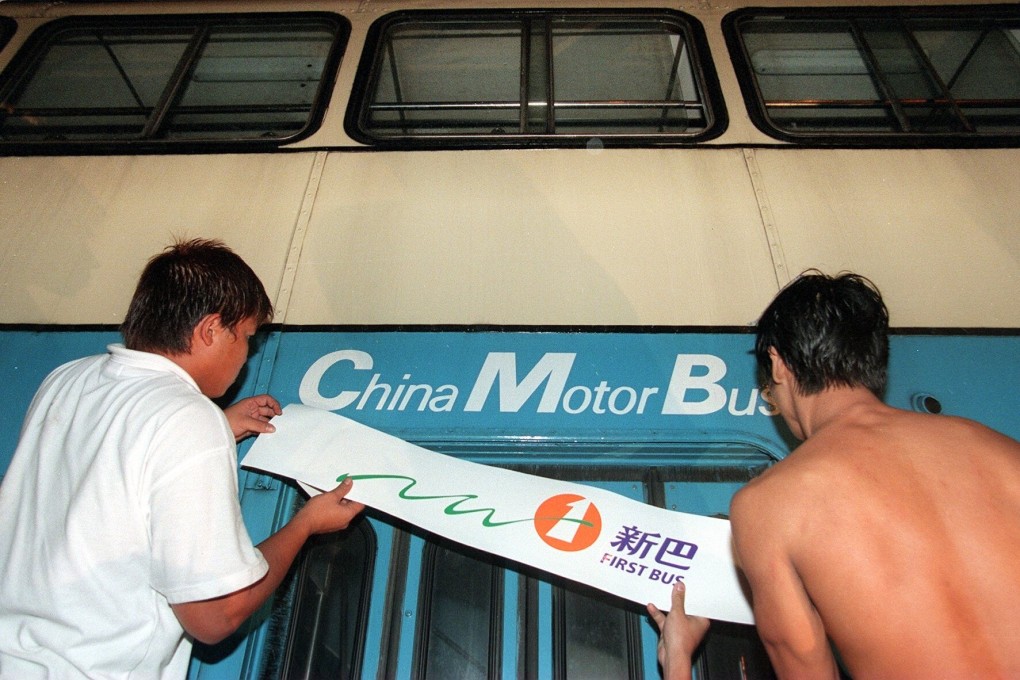When New World took over Hong Kong Island bus routes from China Motor Bus
- China Motor Bus had been resisting government proposals to modernise and was ‘dogged with complaints about poor service’
- The New World takeover, hailed as a ‘new era in public transport’, ensured all 2,300 China Motor Bus staff were taken on board

“Battle set for right to run Island buses,” ran a South China Morning Post headline on June 14, 1997. “The Government is poised to open bus routes on Hong Kong Island for tender after China Motor Bus (CMB) failed to apply for an extension of its franchise in time,” the story continued.
CMB denied not applying for the franchise, saying it had been in “continuous negotiations with the Government”. But on February 18, 1998, the Post reported that “China Motor Bus was stripped of its 65-year-old franchise yesterday, igniting a mixture of job fears and jubilation”.
Founded in the 1920s by rickshaw operator Ngan Shing-kwan, “the company has been dogged by complaints about poor service [...] and industrial action for a decade”.
According to the Post, “CMB had fought government proposals to rationalise routes to boost efficiency, acquire new buses to replace the 35 per cent of its fleet over 18 years old, install new technology such as the Octopus smart-card system and improve staff management and welfare.”
“We need to be assured the new franchise can improve service quality,” said Transport Secretary Nicholas Ng Wing-fui. “We just do not have that degree of confidence in CMB.”